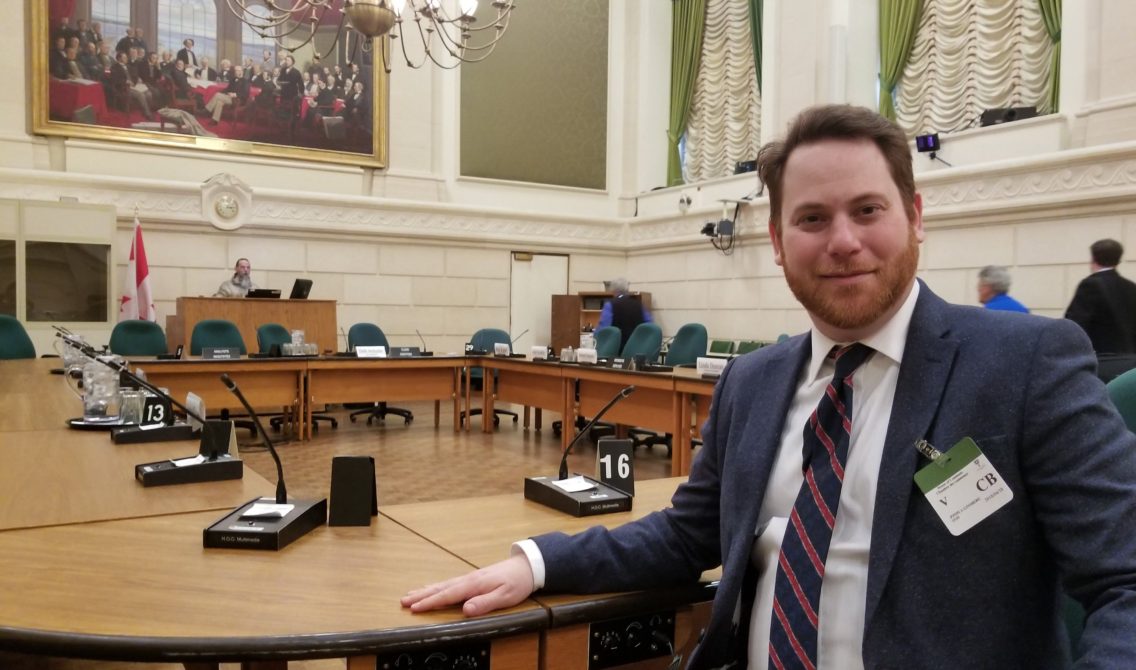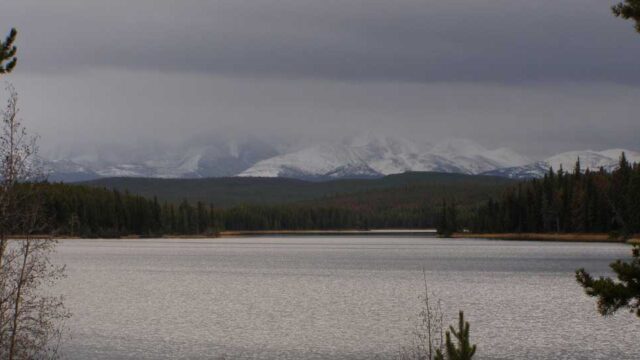Stepping into a courtroom to advocate for nature is never easy. This week, however, I faced a different type of challenge — appearing before the federal Standing Committee on Environment and Sustainable Development to convince MPs to strengthen Canada’s environmental laws.
Strong, enforceable, and well-implemented environmental laws are powerful tools to protect people and the planet. Unfortunately, Canada’s laws leave much to be desired.
Although Canada has a reputation as a generally progressive and green nation, many of the statutes we count on to defend nature and fight for a healthy environment have not kept pace with the times and are ill-equipped to deal with modern threats, such as climate change. In 2012, the federal government further weakened Canada’s environmental legal framework.
The Liberals swept into power in 2015 promising, among other things, to restore public trust in environmental decision-making, engage in nation-to-nation relations with Indigenous communities, and take action on climate change. Since then, I and the Ecojustice team have been meeting with lawmakers on Parliament Hill and urging them to strengthen our environmental laws.
In February, the government tabled two environmental reform bills to mixed reviews. Bill C-69 would replace the Canadian Environmental Assessment Act with a new Impact Assessment Act and the National Energy Board Act with a new Canadian Energy Regulator Act. It would also amend the Navigation Protection Act. Bill C-68 proposes amendments to the Fisheries Act.
Ecojustice submitted a number of written recommendations to improve Bill C-69, which is currently before the environment committee. We called for clearer decision-making requirements, emphasizing the importance of climate considerations and ecosystem health, and urged that protection for waterways be fully restored.
With Earth Day (April 22) just around the corner, I had the opportunity to explain to the environment committee how the proposed Impact Assessment Act falls short of the deeper reforms needed to achieve sustainability. Here’s how it went.
Step inside Centre Block
To set the scene: After passing through security checks and making my way over to the committee room in Centre Block, I enter the large empty room that will soon be filled with MPs, ministerial staff fellow witnesses from environmental groups and First Nation governments, and spectators.
My appearance before the committee is the culmination of months of preparation dissecting the bill to understand its shortcomings and the changes that must happen to ensure it protects communities, the environment and the climate.
I sit down at the large, square table as the room fills up and the meeting gets underway.
“Who would like to start?” asked Deborah Schulte, the committee chair. To which I replied, “I’m happy to do that Madame Chair.”
My allotted 10 minutes passes quickly, but I explain some of our key recommendations:
I remind the committee that in Canada, vulnerable populations — including low-income populations, Indigenous communities, and socially marginalized groups — are disproportionately exposed to environmental hazards while also disproportionately lacking access to environmental benefits.
“Environmental approvals often lack environmental justice”
In other words, environmental approvals often fail to consider environmental justice. This has been at the heart of much of our work in Sarnia’s Chemical Valley, a place where nearby residents, including the community of Aamjiwnaang First Nation, breathe some of the most polluted air in all of Canada.
I emphasize to the committee that it’s important for the new Impact Assessment Act to incorporate environmental justice considerations, like whether the area affected would further burden surrounding communities with disproportionate human health or environmental impacts.
I also point out that the 2012 changes to the environmental assessment reduced the number of projects that get assessed each year from thousands to mere dozens. What’s more, there is no guarantee that the projects on the short assessment list will actually be assessed — the changes allowed the government to exempt any project from the law’s requirements, which happens frequently. Unfortunately, the new Impact Assessment legislation fails to remedy the exemption problem. I urge the committee to drastically narrow the ability to give projects a free pass on legally required assessment.
I also spend time emphasising that climate, ecological health, and biodiversity should be mandatory “bottom lines” in decision-making, not optional considerations, and that courts should be allowed to weigh-in on whether assessment reports and final decisions comply with the law.
My fellow witnesses, including representatives from other environmental groups and the Executive Director of the Grand Council of the Crees, also present important perspectives and analysis on how these bills need to be amended if the government is to truly deliver on its promises to strengthen our laws and restore public trust. Again and again, we impress upon the committee the importance of sustainability and insisted on proper public consultation during environmental review processes.
There is also an opportunity for committee members to ask questions of the witnesses. The exchanges are spirited, and some members seem to understand the importance of the amendments we suggest.
“What do you believe are the most critical changes needed to the bills to restore public trust in the federal assessment process?”
-Linda Duncan, Member of Parliament for the riding of Edmonton Strathcona
In closing
Once the committee finishes hearing from witnesses at the end of this month, the bill will then move to clause-by-clause review — which is the best chance to amend the legislation. After this, it will head back to the House for third reading and a final vote before making its way to the Senate. Meanwhile, the Fisheries Act bill starts its own journey in committee.
This is a historic opportunity to enact modern laws to protect Canada’s biodiversity and our communities and to plan for the impacts of climate change. We’ll keep advocating to make sure our elected representatives get it right.





